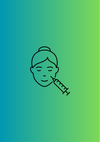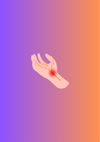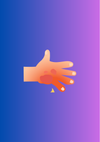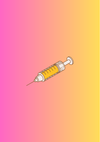
Upper Limb Nec Fasc on the Rise, 3 Necrotising Fasciitis Diagnoses, & the Debridement Drill
In this week's edition 1. ✍️ Letter from P'Fella P'Fella on vacation mode! 2. 🤓 The

In this week's edition 1. ✍️ Letter from P'Fella P'Fella on vacation mode! 2. 🤓 The

Injectable fillers restore volume and contour without surgery. HA gives lift; biostimulants like PLLA and CaHA spark collagen. The filler choice depends on the zone and goals. Adverse effects include bruising, occlusion, and rare blindness. These emergencies may require hyaluronidase.

Also: Foundations in progress, podcast suggestions, & the Sunday quiz.

Flap vascular compromise, arterial ischaemia or venous congestion, usually emerges within 72 h post‑op. Watch colour, cap‑refill, Doppler/NIRS. Early re‑exploration or adjunct venous‑drainage within 6 h can salvage >60 % of flaps; delays sharply cut survival.

Also: Kessler technique in action, EURAPS annual meeting, & the Sunday quiz.

Extensor tendon injuries affect hand and finger extension and are classified by anatomical zones. They result from lacerations, rupture, or attrition, with Zone I injuries (mallet finger) being most common. Assessment includes Elson’s test and imaging. Management varies by zone and injury severity.

The bilobed flap is a two-lobe transposition ideal for small to moderate nasal/facial defects, pivoting around one point to redistribute tension and preserve contours. First lobe matches defect size; second is smaller. While outcomes are great, flap planning or design errors can cause complications.

Also: The Sunday quiz, event calendar, & a video tutorial on fat grafting.

Fasciocutaneous flaps use skin, fat, and fascia (without muscle) for thin, pliable, well-vascularized coverage. Supplied by perforator-fed plexuses, they’re classified by vascular entry or pedicle type. Ideal for trauma and oncologic reconstruction, with low donor morbidity and muscle preservation.

Also: The Sunday quiz, original Quaba flap, & AI surgical studio update.

This study highlights large cost disparities for IMGs in plastic surgery sub-internships: fewer program acceptances and fees 17x higher. IMGs' median cost for ~4.5 away rotations is ~$9K vs. ~$500 for US peers, emphasizing the need for standardized fees and scholarships.

Burn size guides triage, fluids, and outcomes. Lund-Browder is most accurate, especially in children. Rule of Nines is quick but less precise in kids/obesity. Palmar method is handy for small burns. The revised Baux score uses age, TBSA, and inhalation risk to predict mortality. Accuracy is vital.

Also: A fresh round of the Sunday quiz, retention rate of fat grafts, & stats on matching in plastic surgery.

Burn management depends on type, depth, extent, location, and patient factors. Initial care includes cooling, preventing hypothermia, ABCDE assessment, and fluid resuscitation. Wound care involves debridement, dressings, and grafting. Complications range from sepsis to scarring.

Fat grafting transfers autologous adipose tissue for volume restoration, contour correction, and tissue repair. The process involves harvesting, processing, and reinjection. Key complications include fat resorption, necrosis, and embolism.

Upper limb cellulitis is a bacterial infection of the skin and subcutaneous tissue, causing erythema, warmth, and swelling. Diagnosis is clinical and involves imaging. Treatment includes cephalexin for mild cases, IV antibiotics for severe infections, and drainage for abscesses.

Also: Proper propranolol dosing, calling expert reviewers for the textbook, & 3 recommended articles.
The aim of this section is to improve your diagnostic skills in treating a common plastic surgery condition. A good

Also: Final round of the Sunday quiz, pincushioning explained, & original local flap publications.

Rotation flaps are curvilinear pivotal flaps ideal for triangular defect repair, commonly used for facial, cheek, chin, and scalp reconstruction. Success depends on defect triangulation, flap circumference, and pivot point positioning. Post-op focuses on hematoma prevention and sun avoidance.

Also: A video breakdown of SMAS lift Botox, the Sunday quiz, & 3 eyelid recon reads.

TXA is widely used in plastic surgery, especially in facelifts (83.6%) and rhinoplasty (55.0%), reducing bleeding (61.8%) and bruising (63.2%). Common methods include 1 g IV bolus or 3% topical solution, with 92.4% reporting no complications. Despite benefits, standardization is needed.

Finger replantation restores function, sensation, and aesthetics following the traumatic or surgical loss of a digit. Success depends on injury type, ischemia time, and microsurgical repair. Complications like venous insufficiency and arterial thrombosis require early management.

Also: The Sunday quiz, nerve recon tip, & 3 recommended reads.

